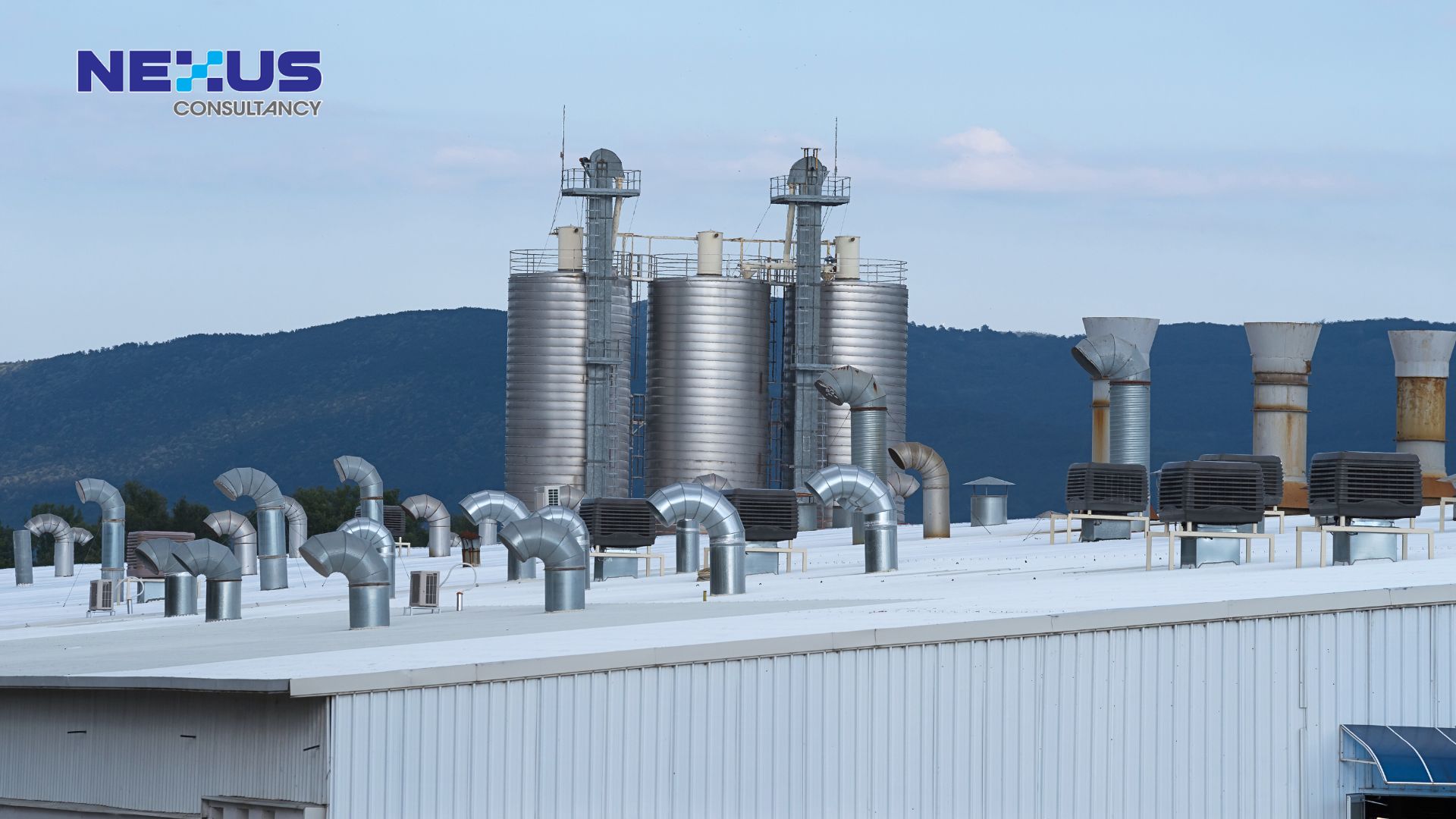
Danielle Tan
Managing Consultant
” When it comes to HACCP validation, verification and monitoring, wrapping our minds around it is crucial and not always easy.”
– 5 mins read
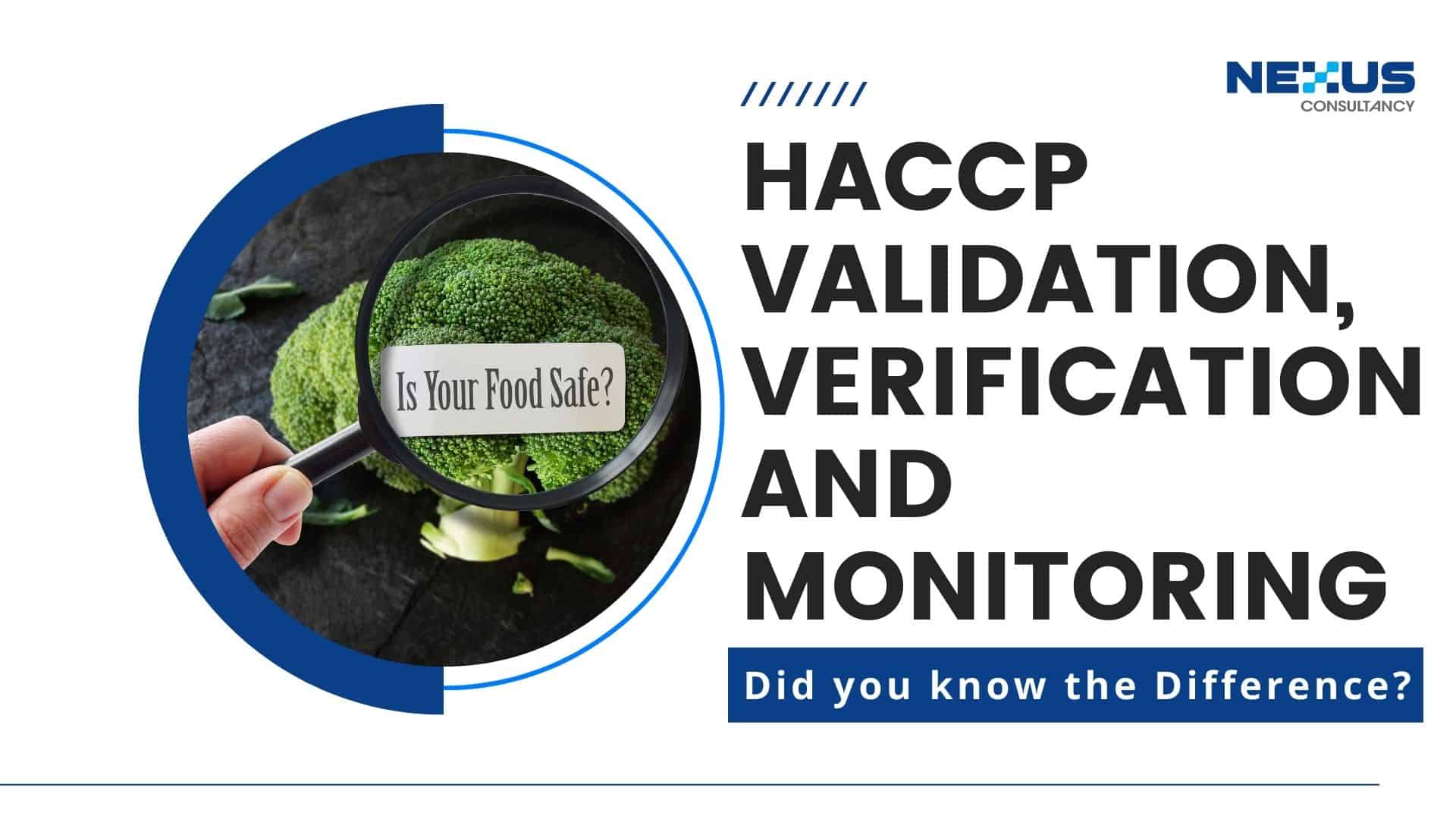
In the Codex HACCP 2020 standard, there is a guidance on 3.9 Establish a Monitoring System for Each CCP and 3.11 for Validation of the HACCP Plan and Verification Procedures:
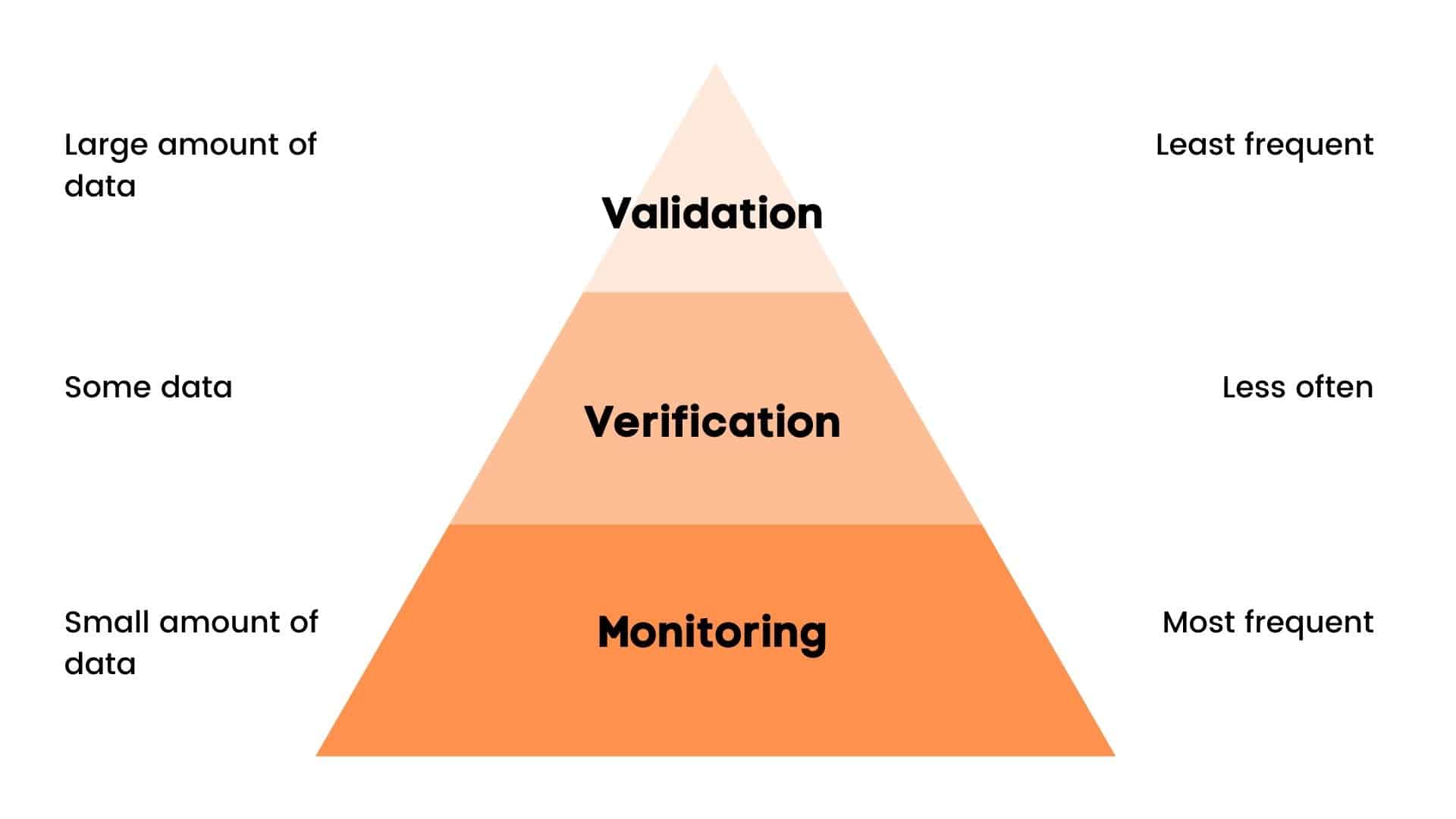
Clause 3.9 Establish a Monitoring System for Each CCP
Monitoring of CCPs is the scheduled measurement or observation at a CCP relative to its critical limits. The monitoring procedures should be able to detect a deviation at the CCP. Further, the monitoring method and frequency should be capable of timely detection of any failure to remain within critical limits, to allow timely isolation and evaluation of the product. Where possible, process adjustments should be made when monitoring results indicate a trend towards a deviation at a CCP. The adjustments should be taken before a deviation occurs.
Clause 3.11.1 Validation of the HACCP Plan
Before the HACCP plan can be implemented, its validation is needed; this consists of making sure that the HACCP elements together are capable of ensuring control of the significant hazards relevant to the food business: identifying the hazards, critical control points, critical limits, control measures, frequency and type of monitoring of CCPs, corrective actions, frequency and type of verification and the type of information to be recorded.
Clause 3.11.2 Verification Procedures
After the HACCP system has been implemented, procedures should be established to confirm that the HACCP system is working effectively. These include procedures to verify that the HACCP plan is being followed and controlling hazards on an ongoing basis, as well as procedures that show the control measures are effectively controlling the hazards as intended. Verification also includes reviewing the adequacy of the HACCP system periodically and, as appropriate, when changes occur.
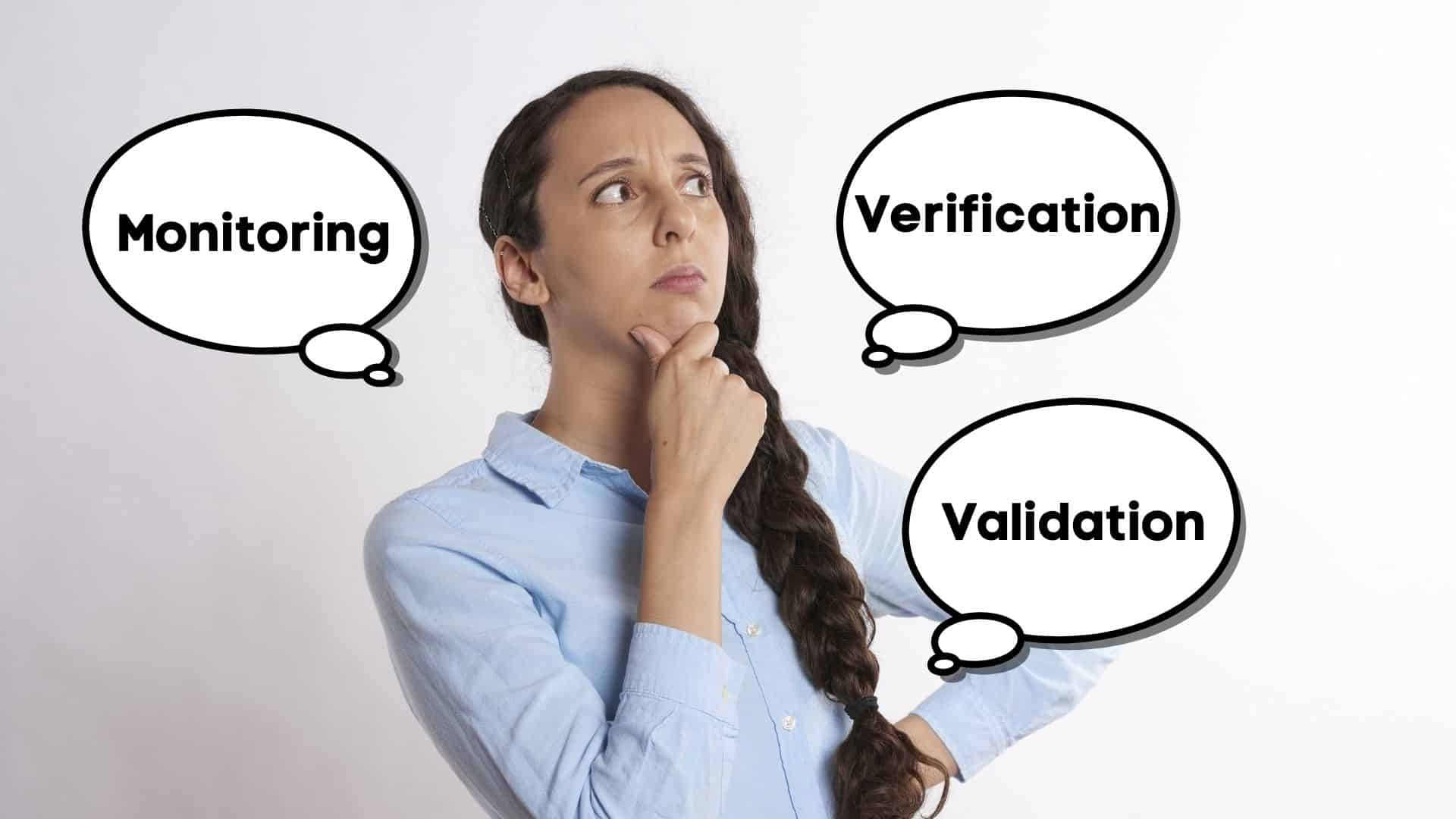
So, what exactly do we mean when we say “Validation”, “Verification” and “Monitoring”?
Validation is the process of obtaining evidence that the elements of the HACCP plan (CCP critical limits) are effective.
Verification is the process of checking using defined methods, procedures, tests and other evaluations, in addition to monitoring, to determine compliance with the HACCP plan.
Monitoring is a routine activity which provides evidence that a CCP is operating as intended. It is not verification.
So, in simple words:
Validation is – proving that it will work.
Verification is – proving that it is working according to the plan.
Monitoring is – proving that it is being done according to the plan.
The Differences between Validation, Verification and Monitoring:

Here are some validation, verification and monitoring examples:
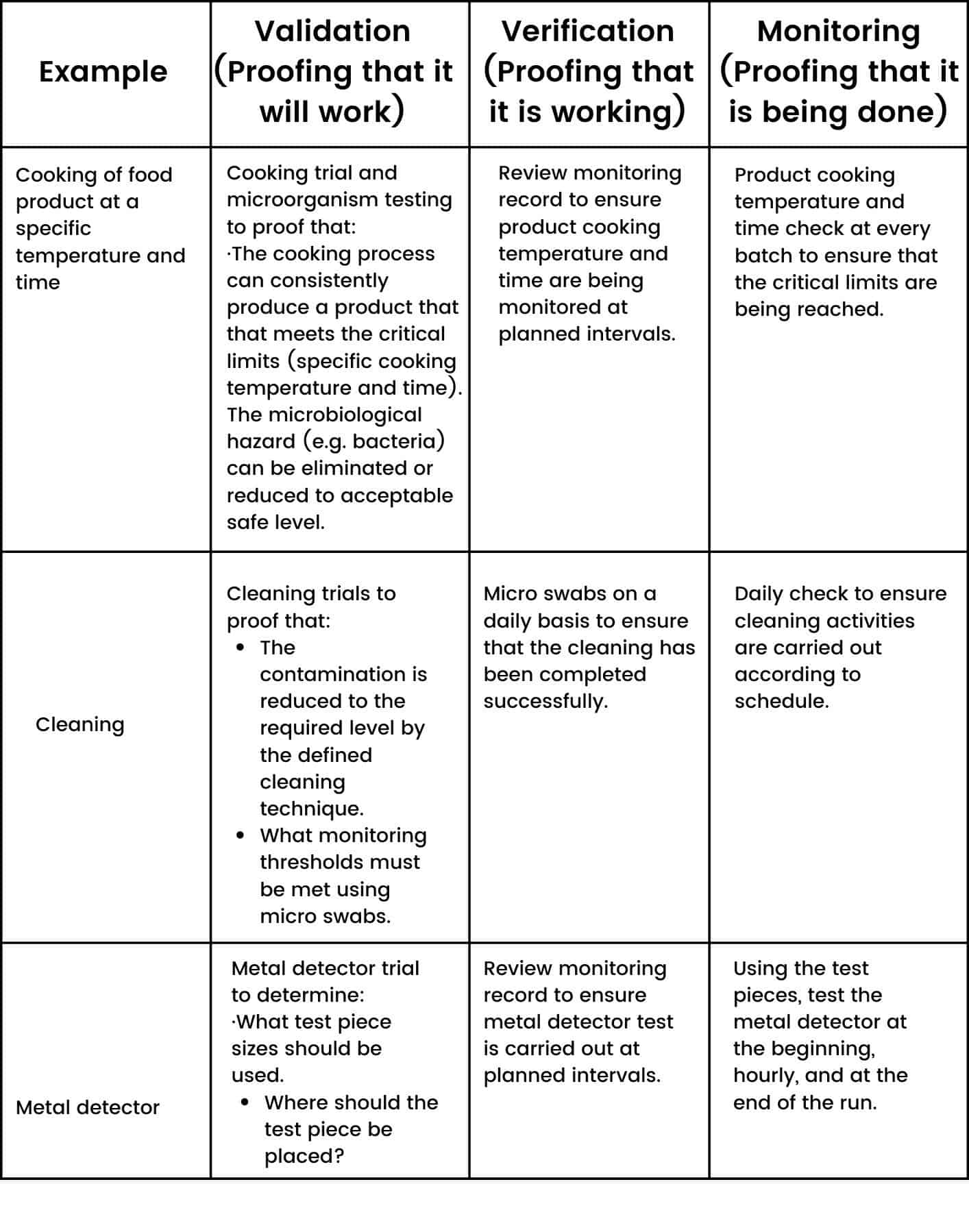
Review Your HACCP Plan Regularly
And finally, don’t forget about your HACCP plan once you’ve completed it. The program is a live, dynamic document and plan that should be reviewed and revised on a regular basis to reflect the facility’s, customers’, and regulators’ changing needs.
Reference :
- Codex Alimentarius General Principles of Food Hygiene CXC-1 1969 (version 2020)
- https://techni-k.co.uk/uncategorised/haccp-validation-verification/
- https://safefoodalliance.com/haccp/the-6th-haccp-principle-verification/
More Article
What Is Food Safety Culture and Why It Matters More Than Ever
Chief Operating OfficerLearn why food safety culture is a must-have for compliance, brand trust, and growth—backed by ISO consultants in Malaysia.In today’s competitive and tightly regulated food manufacturing landscape, compliance alone is no longer enough. To...
Why Proactive OSH Legal Compliance Is Good for Business Reputation
Chief Operating OfficerWorried about Malaysia’s OSH Act penalties or workplace audit readiness? Discover how proactive OSH compliance builds trust, reduces fines, and supports ESG goals.In today’s competitive market, companies are judged not just by their products or...
Positioning Your Brand for the Future with Strategic ESG Reporting in Malaysia
Chief Operating OfficerLooking to strengthen trust, investor appeal, and brand leadership in sustainability? Learn how ESG reporting in Malaysia is powering business growth. Start your ESG reporting journey with expert support!In a world where trust and transparency...
Why FSSC 22000 Certification Is Critical for Protecting Your Food Business and Brand in Malaysia
Chief Operating OfficerSecure your food business with FSSC 22000 certification! Enhance safety and compliance. Get expert help—Contact us today! In today's competitive food industry, maintaining food safety and consumer trust is essential. Food manufacturers,...






